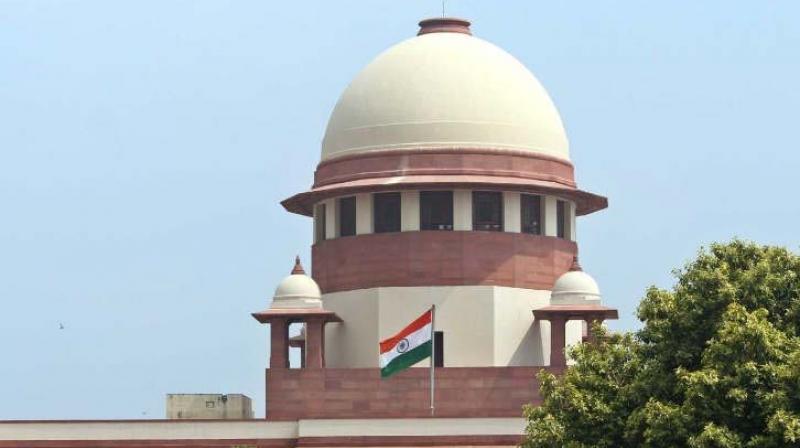Activists pin hope on Supreme Court to bring parties under RTI

Hyderabad: With the ruling of the South African Constitutional Court that voters have the right to know who funds political parties, lawyers and RTI activists of this country are hoping that the Supreme Court will bring political parties under the purview of the Right to Information Act, paving the way for citizens to know the source of funding to major political parties of the country.
The Constitutional Court of South Africa while confirming a Western Cape High Court ruling that certain parts of the Promotion Access to Information Act fail to provide for the recording of private political party funding, ruled that voters have the right to know who funds political parties.
My Vote Counts, a civil organisation in South Africa, has won its attempt to get a declaratory order upholding a High Court judgement that information on the private funding of political parties must be made publicly available.
Recalling that national political parties’ resisting attempts to bring them under the RTI, Sarasani Satyam Reddy, senior advocate said, “Bringing transparency into political funding must be a voluntary action even if it is not imposed by the law in a democracy like India.”
P.V. Krishnaiah, who practices at the Hyderabad High Court, said that the Central Information Commission (CIC) in 2013 had declared all national and regional political parties as public authorities under the RTI and in March, 2015, it had reiterated the order as “final and binding”.
A full bench of the CIC had on June 3, 2013, issued the order on a petition by RTI activists Subhash Agrawal and Anil Bairwal of the Association for Democratic Reforms (ADR).
They had asked that the sources of finance and contributions to six national parties — the Bharatiya Janata Party, Congress, Bahujan Samaj Party, Nationalist Congress Party, Communist Party of India and Communist Party of India (Marxist) — be made public.
The ADR representatives approached the Supreme Court following the non-compliance of political parties to repeated orders of the CIC in 2013 and March 16, 2015.
The Union government in its affidavit filed before the Supreme Court contended that “the CIC has made a very liberal interpretation of Section 2(H) of the RTI Act, leading to an erroneous conclusion that political parties are public authorities under the RTI Act. Political parties are not established or constituted by or under the Constitution or by any other law made by the Parliament”.
The Union government had informed the apex court that there were already provisions in the Income Tax Act, 1961, and Representation of the People Act, 1951, which demand “necessary transparency regarding financial aspects of political parties.”
The government said registration of a political party under the 1951 Act was not the same as establishment of a government body. The Central government also claimed that “if political parties are held to be public authorities under (the) RTI Act, it would hamper their smooth internal working, which is not the objective of the RTI Act and was not envisaged by the Parliament.”
Menaka Guruswamy, Supreme Court advocate while welcoming the verdict of the African court, tweeted, “On donations of political parties. Well done Court. Would be most useful to have in India as well! We should know who funds our politicians, will tell you much about policy making.”

